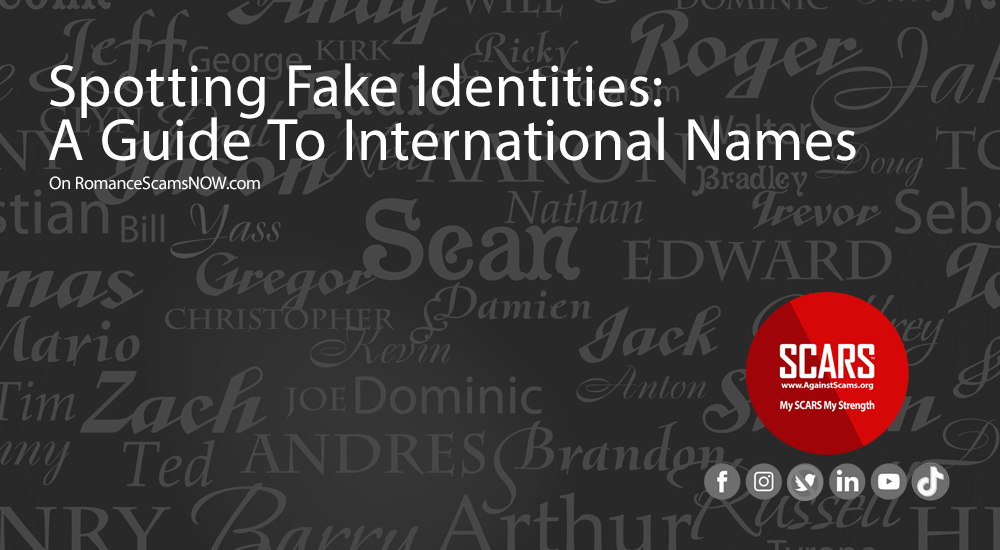Spotting Fake Identities:
A Guide To International Names
A SCARS Guide
A Guide To Help Understand The Form & Construction Of International Names
Identification of suspects, victims, and witnesses is critical to effective law enforcement as well as for helping victims or potential victims identify criminals.
Police officers and victims often interact with persons of international origin or background, whether nationals or immigrants (legal or illegal). Additionally, they may be interacting with criminals impersonating persons of other nationalities.
America is the land of immigrants, and many jurisdictions contain communities populated with persons from around the world. But online it is a different story, since the internet is the World!
Police, Victims, and the public often contend with organized crime organizations from Russia, Mexico, West Africa & the Middle East, and Asia, among many other locations, and proper identification of these and other international groups is imperative. However, when criminals use aliases to impersonate others there are a confusing array of fake names.
A name can be a source of information about that person, including his/her gender, heritage/race, country of origin, marital status, social status, occupation, and religion. The listed order and significance of names vary by country, region, religion, and other factors. Paying close attention to the various international naming conventions will be beneficial in understanding something about the person, such as their region of origin, but it may also help you spot a fake name by its improper structure. Being able to understand the order and significance of international names alone can provide information, regardless of possible language barriers that may exist. Also, many times online criminals have associates – understanding the origin of their names (regardless of where they say they are from) can help you spot inconsistencies in the storylines!
This guide on international naming conventions is designed for law enforcement but can be used by victims and the public alike to better understand how names from various countries are formed and what information can be obtained from these names. The guide is generalized; naming conventions can vary by regional and familial practices. If you are unsure whether a person switched his/her naming order, you can type the given and/or family name into a search engine (Google.com or Yahoo.com for example) for assistance in determining the order listed.



Leave A Comment